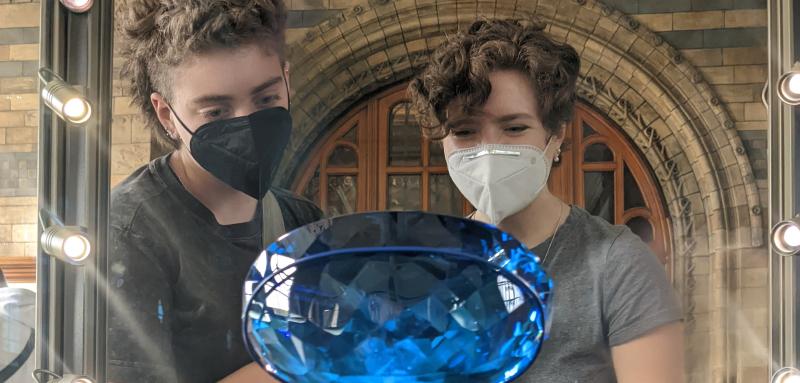
360°: Minerals, Museums, and Western Colonialism
The science of Geology developed rapidly in the second half of the 19th century, partly accelerated by the influx of rocks and minerals from areas of the world that Western nations were colonizing. Those specimens – which often came from mineral deposits that both motivated and funded Western invasions, and were often brought to the surface by Indigenous laborers working in colonial contexts – now form the historical backbone of many Western mineral collections, including Bryn Mawr’s. As Geology reckons with its past and present social roles, a central question for such collections becomes: how can we center these specimens’ human histories, rather than continue to ignore them? This 360 will examine that question in the context of Bryn Mawr College’s mineral collection: more than 40,000 specimens, most of which were sampled in the mid- to late-19th century. Students will read and discuss papers related to the history of geology, examining the ways that the early history of Geology was intertwined with Western colonialism and imperialism. Students will also work directly with the Bryn Mawr mineral collection, applying our in-class discussions to our own institution’s objects, and will travel to other mineral collections that are reckoning with their own histories in different ways.
Minerals, Museums, and Western Colonialism Courses
GEOL 210: Cataloging Collections
This course, co-taught by Carrie Robbins and Marianne Weldon, is an introduction to cataloguing as an integral component of museum collections management. Students will consider the history, theories, and practices of cataloguing as a museum practice as it relates to the different objectives of various types of museums (art, natural history, science, history, zoological). Students will explore how cultural attitudes, institutional policies, and social expectations have historically influenced, and continue to shape, the development of collections management policies and procedures, while undertaking projects related to collections research and cataloguing. They will evaluate and recommend standardized vocabularies to build a collections database that accommodates more complex histories while optimizing searchability. They will engage with instructors who are actively involved in the professional operations of and calls to “decolonize” collections, becoming trained in the fundamentals of cataloguing collections as they actively rethink these structures and contribute to object records.
GEOL 350: Colonialism in the History of Geology
In the 18th and 19th centuries, Geology was expanding rapidly as a science -- and as a critical knowledge base for global trade in minerals, ores, and metals. As Western explorers, military expeditions, and colonies expanded into more and more countries, they sent back specimens and data sets that fueled the development of Geology in Europe, the U.S., Australia, and South Africa. In turn, advances in Geology made possible the extraction of geologic resources that fueled further Western expansion. This course will examine the history of Geology in its colonial context, focusing on the relationships between early geologists, Indigenous peoples, colonial powers, and mining industries. Students will read primary literature from both Geology and the history of Geology, and will work with specimens and documents from the Bryn Mawr Mineral Collection. Taught by Selby Hearth.
